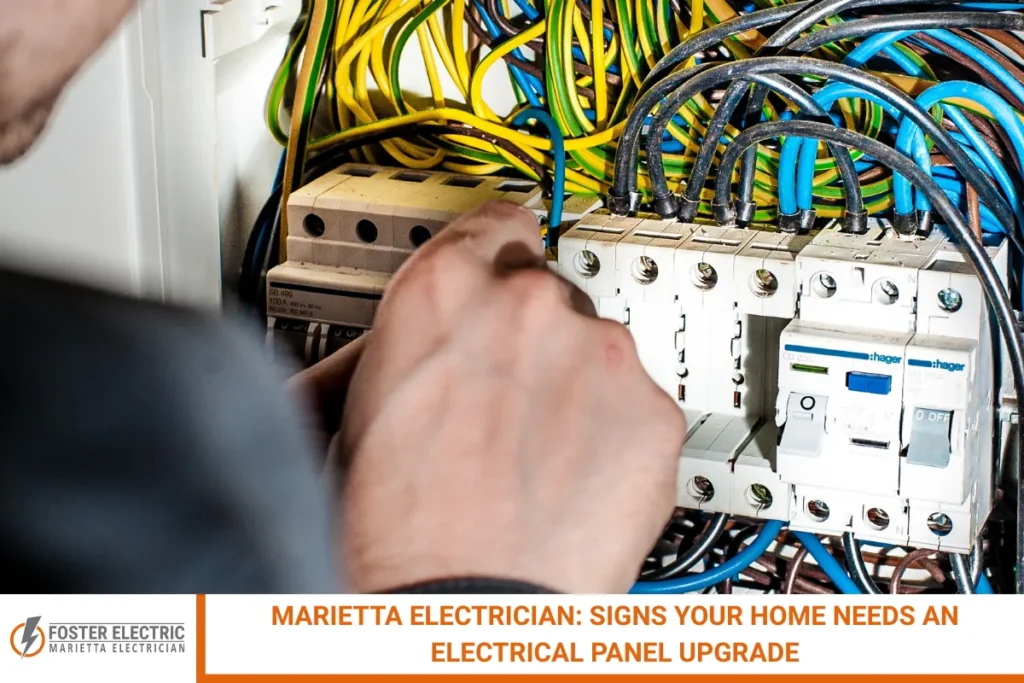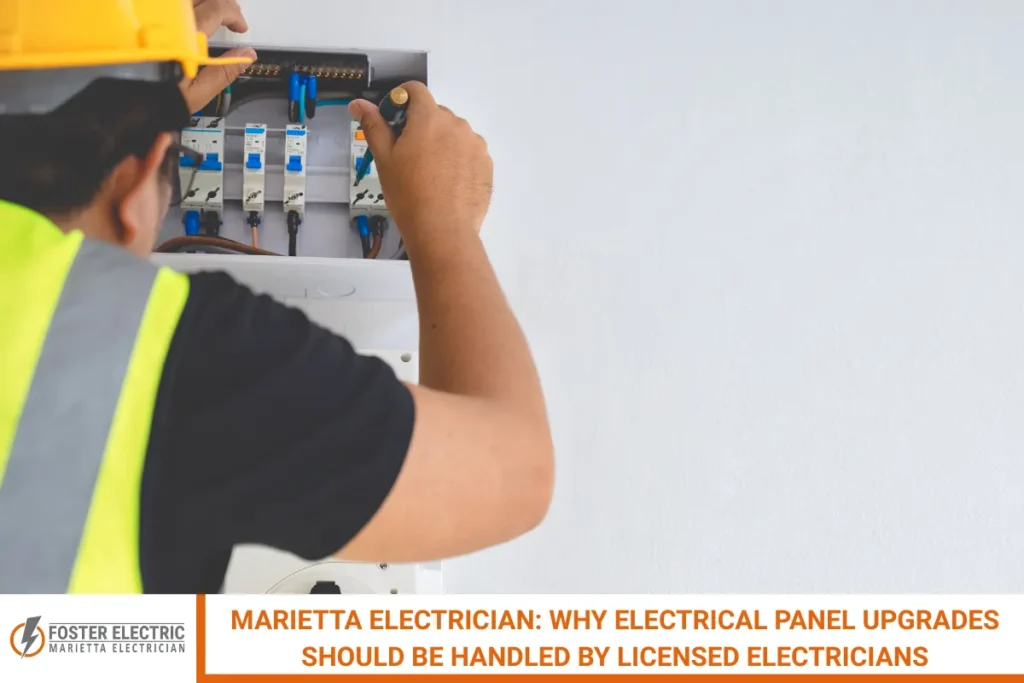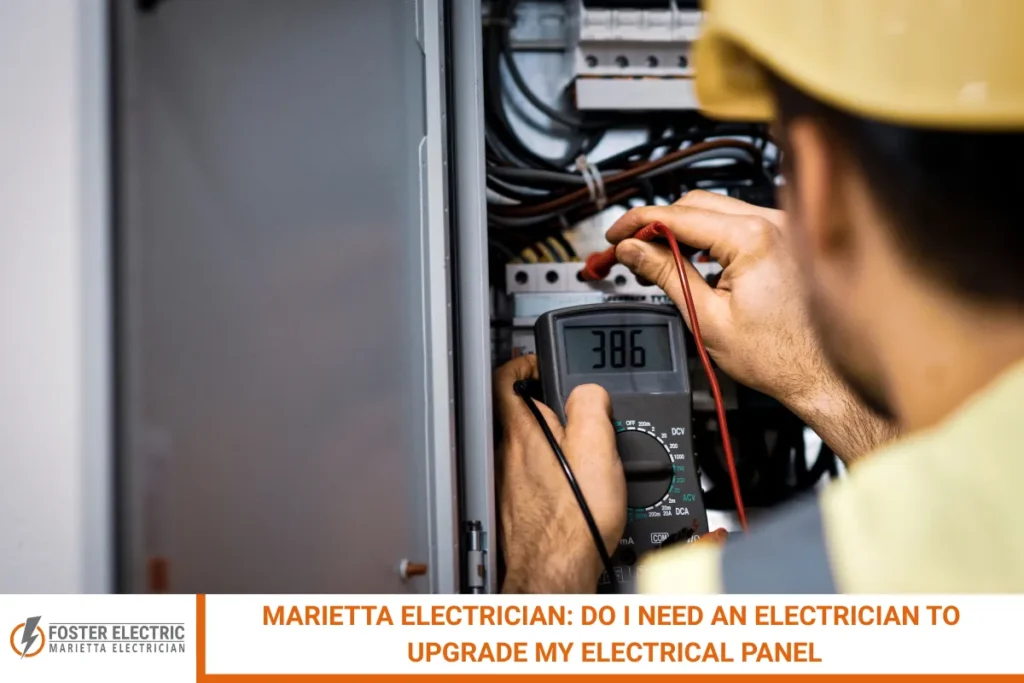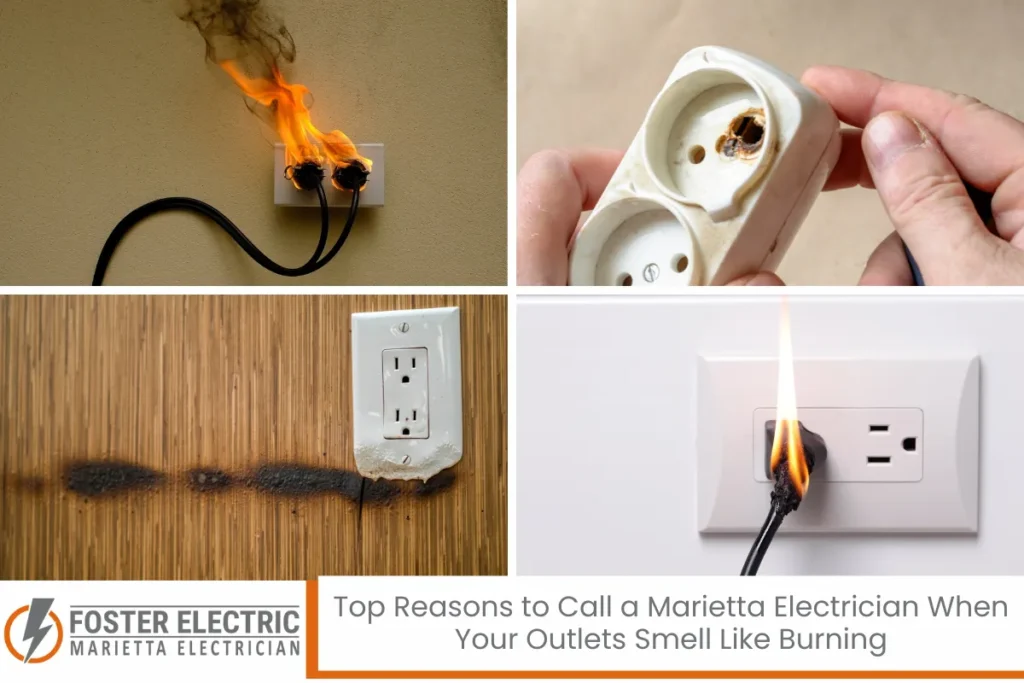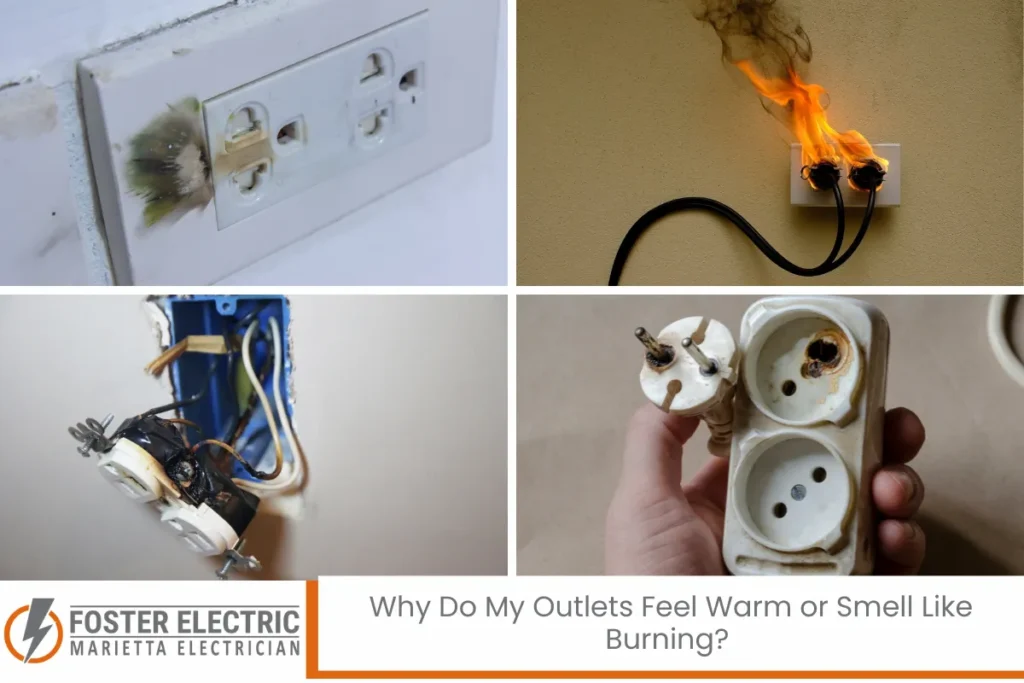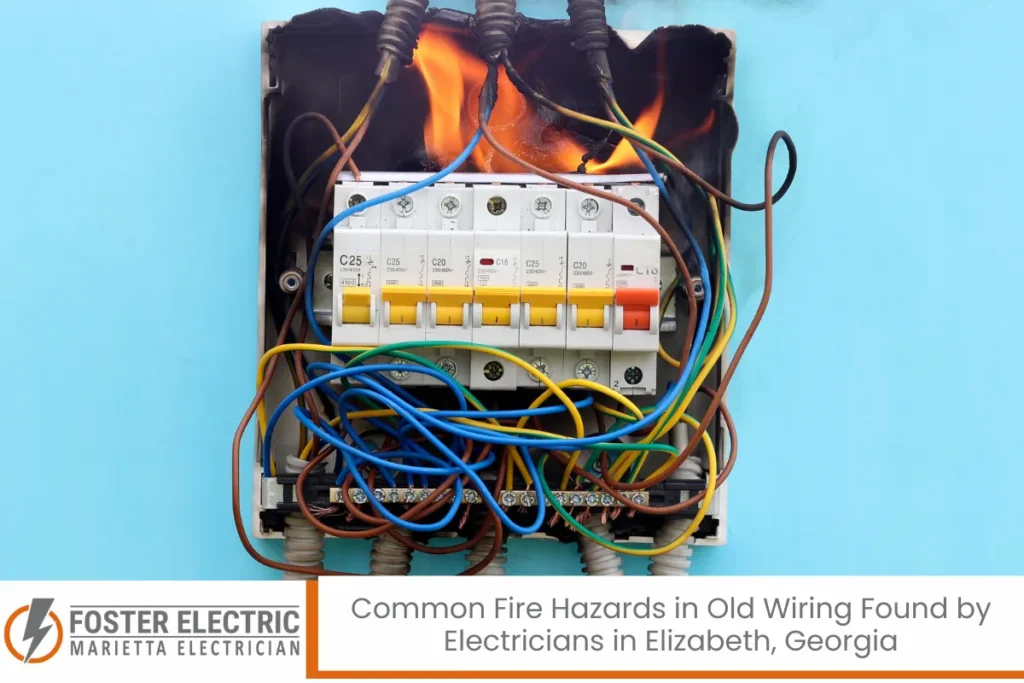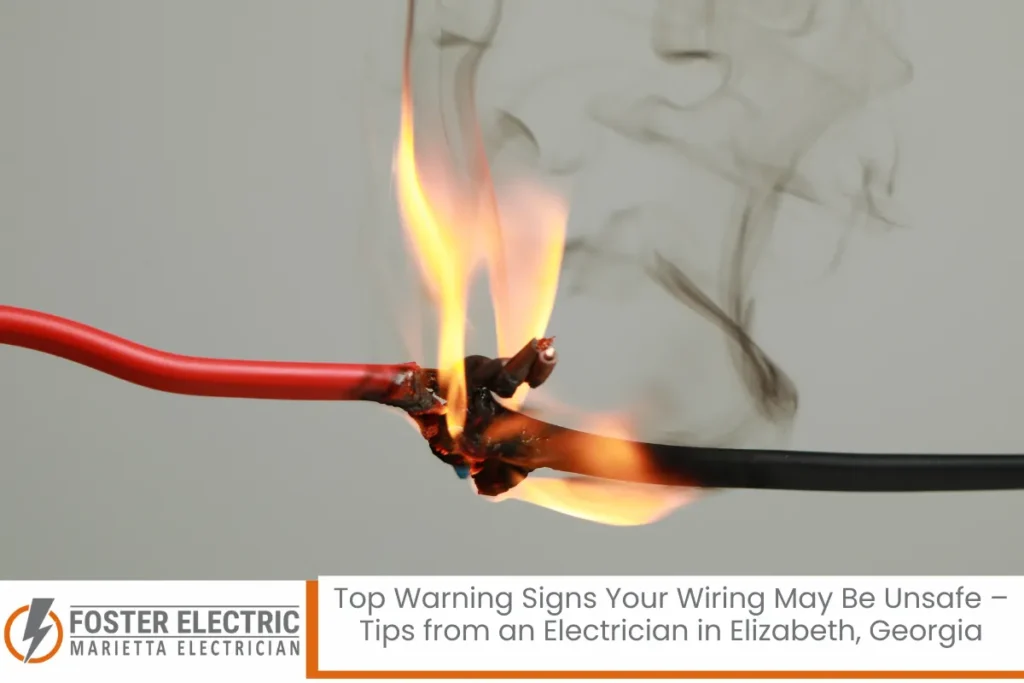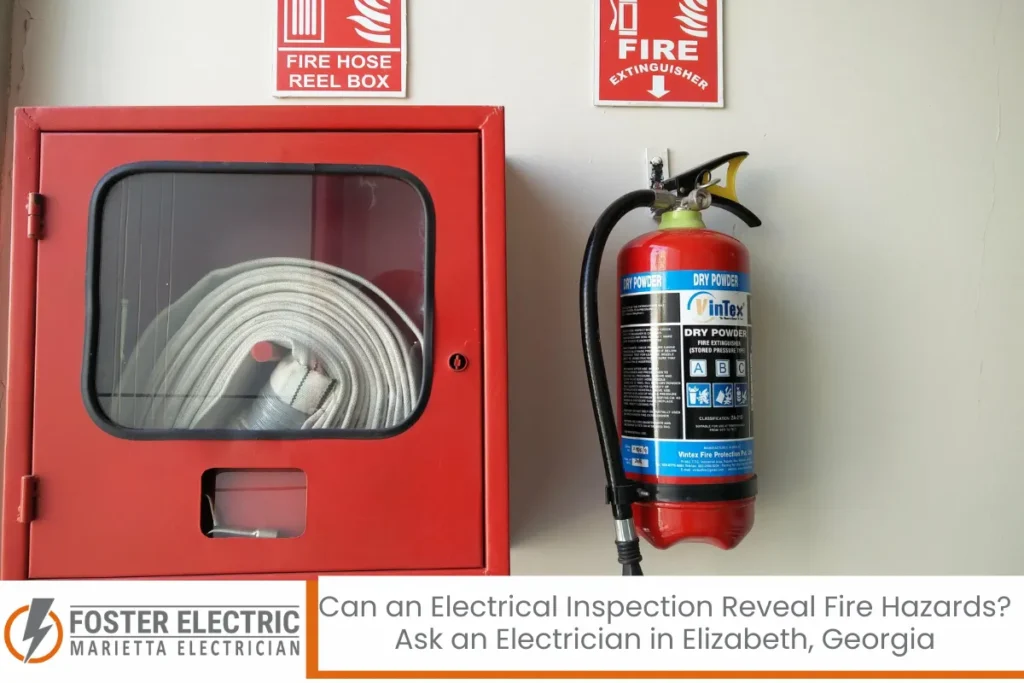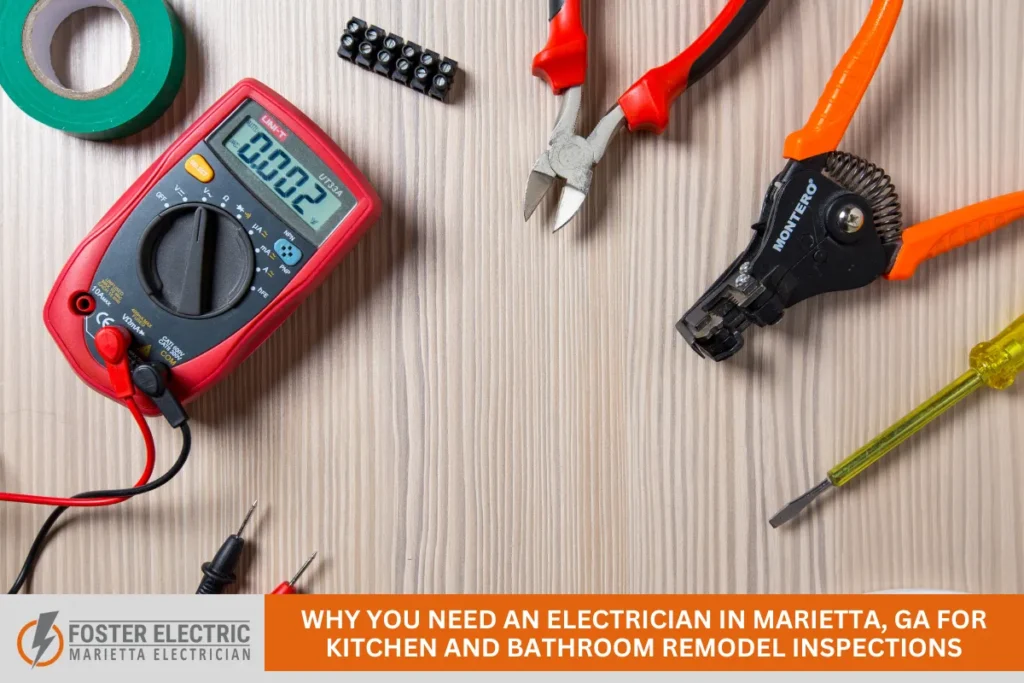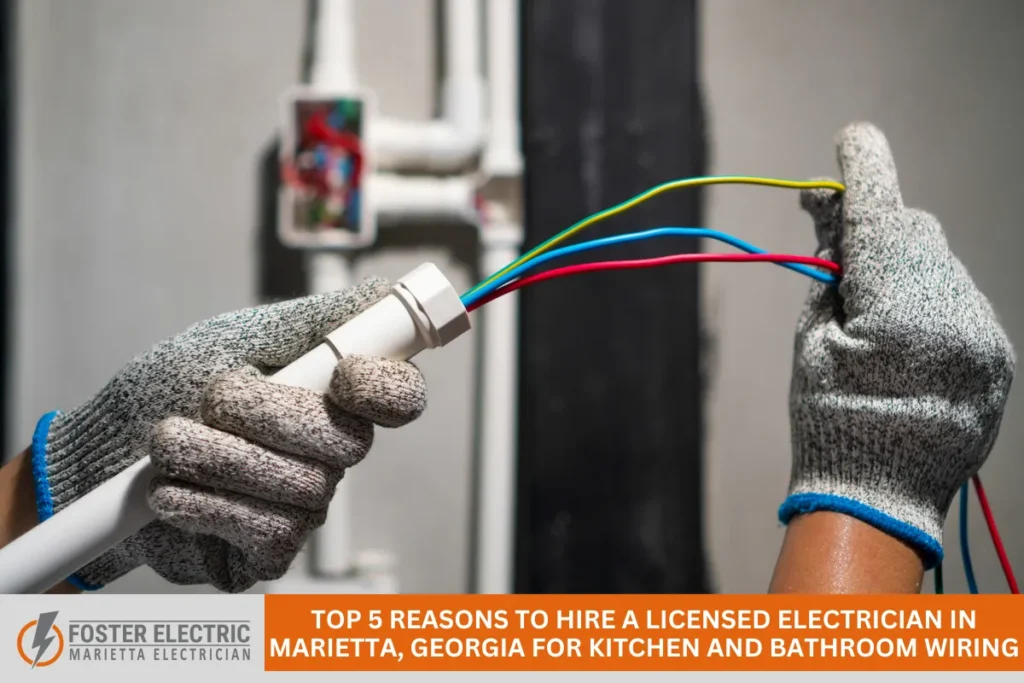Electrician inspections in Elizabeth, Georgia, often uncover outdated and unsafe wiring conditions that pose serious fire hazards. With many homes in the area built decades ago, aging electrical systems pose a silent threat that many homeowners are unaware of. These risks are hidden behind walls, in attics, and under floors—places most people never check until a problem sparks.
The charm of older homes in Elizabeth comes with responsibilities that are often overlooked. Electrical systems, like any other system, have a lifespan. Over time, wires break down, materials corrode, and the standards of yesterday no longer meet today’s safety needs. In this guide, we’ll explore the most common fire hazards found by electricians in older homes across Elizabeth, explain how they can cause fires, and share practical tips on how to stay safe.
The Danger Behind the Walls: Understanding Old Wiring in Elizabeth Homes
Old wiring refers to electrical systems installed many years ago, typically during a time when the household’s electrical load was minimal. Decades ago, homes had fewer appliances, no computers, and minimal lighting. Today, the demand is higher, and old systems struggle to keep up.
Electricians in Elizabeth frequently discover original wiring from the 1940s, 50s, and 60s still in use. These systems were never designed for high-energy-consuming devices, such as microwaves, HVAC units, or home entertainment setups. As demand grows, these systems overheat, short out, and, in worst cases, spark fires.
Some homes still use outdated wiring methods that are no longer up to code, such as knob-and-tube or aluminum wiring. Without proper upgrades, these materials become brittle, loose, and dangerous over time. While these problems may remain hidden for years, a single spark in the wrong place can change everything in an instant.
Knob-and-Tube Wiring: A Relic That Can Ignite
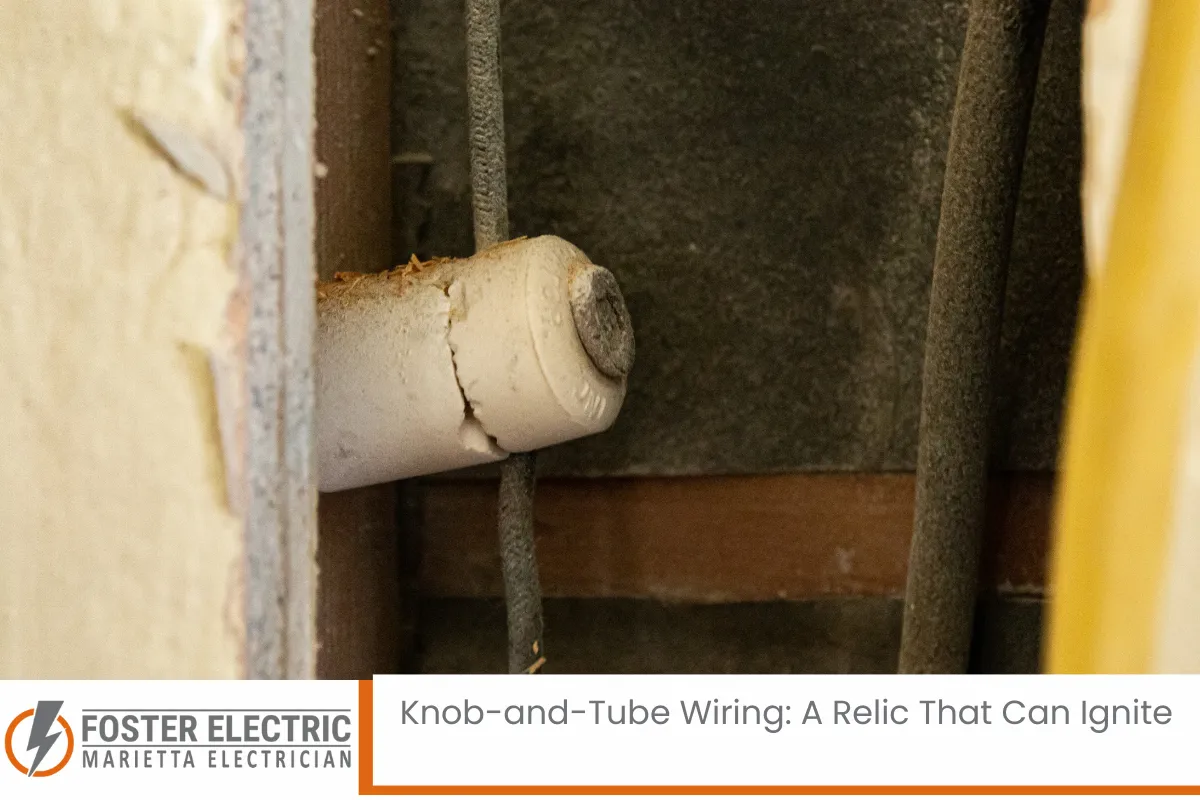
Electrician evaluations in older Elizabeth properties often find knob-and-tube wiring—an early method used between the late 1800s and 1940s. It consists of single-insulated copper conductors running through ceramic tubes and secured with porcelain knobs.
While this system was safe in its time, it’s not equipped for modern power usage. The lack of a ground wire alone makes it a risky situation. Still, the insulation around the wires also degrades over the years, exposing bare copper. These exposed wires become extremely dangerous, especially in attics or walls filled with dry, combustible materials.
In addition, knob-and-tube wiring isn’t compatible with today’s energy codes. It wasn’t designed to support heavy power loads, and modifying it with newer components creates fire-prone connections. Electricians recommend the complete removal and replacement of this system in any home where it still exists.
Aluminum Wiring: Lightweight, But High Risk
Aluminum wiring became popular in the 1960s and 70s due to copper shortages. While aluminum is a good conductor, it behaves differently from copper and has unique hazards.
Over time, aluminum expands and contracts more than copper. This movement loosens connections, especially at outlets and switches, creating gaps where heat can accumulate. Electricians in Elizabeth have seen cases where these gaps caused melted wires, scorched outlets, and even small electrical fires.
Another concern is oxidation. Aluminum reacts with air to form an oxide layer that increases electrical resistance. Higher resistance means more heat, which is never desirable in electrical systems. Additionally, aluminum is more brittle and more prone to breakage during repairs or renovations.
Due to these factors, electricians strongly recommend updating aluminum wiring with copper or using special connectors approved for aluminum-to-copper transitions to minimize fire risk.
Brittle or Damaged Insulation: Silent and Dangerous
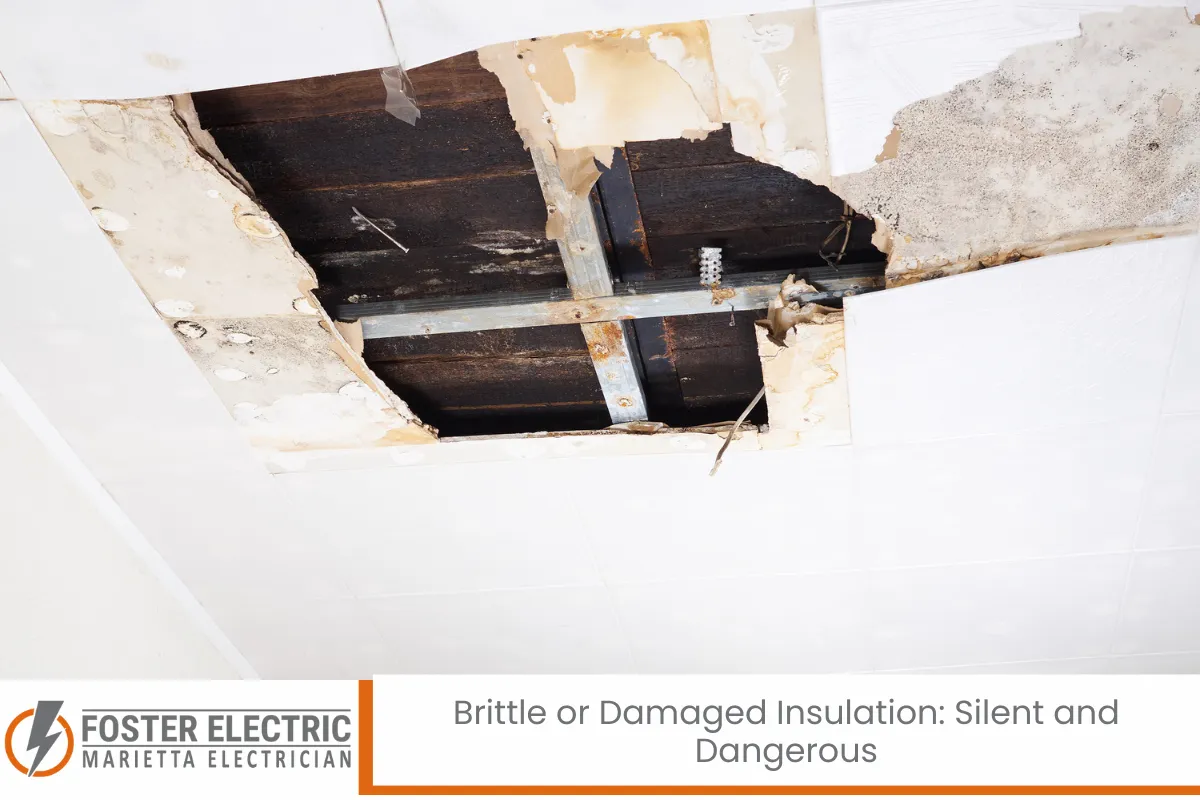
Electricians often discover that the insulation protecting old wires becomes dry, brittle, or cracked over time. Insulation is essential—it prevents electrical current from escaping and keeps wires from coming into contact with flammable materials.
In homes around Elizabeth, the southern heat and humidity accelerate this deterioration. Once insulation wears away, bare wires can come into contact with wood framing, insulation materials, or even other wires, leading to short circuits and potential fires.
A common sign of insulation failure is the smell of something burning behind walls or occasional flickers in the lights. But in many cases, homeowners don’t notice anything until significant damage has already occurred. Regular inspections by an electrician are crucial for identifying insulation breakdowns before they escalate into emergencies.
Ungrounded Wiring: Outdated and Unsafe
Many older homes in Elizabeth still have ungrounded wiring, recognizable by two-prong outlets without a third grounding hole. Grounding is a critical safety feature in modern electrical systems. It provides a safe path for stray electricity, preventing shocks and electrical fires.
Ungrounded systems increase the chance of electrical faults. When there’s no grounding wire, electricity may arc or spark inside walls during a surge. Modern appliances and electronics are also more susceptible to damage in these setups—they can short out, become damaged, or even cause fires.
Electricians recommend replacing ungrounded wiring with grounded circuits and updating all outlets to three-prong grounded versions. This upgrade not only enhances safety but also brings the system up to current code standards.
Overloaded Circuits: Too Much for Old Systems to Handle
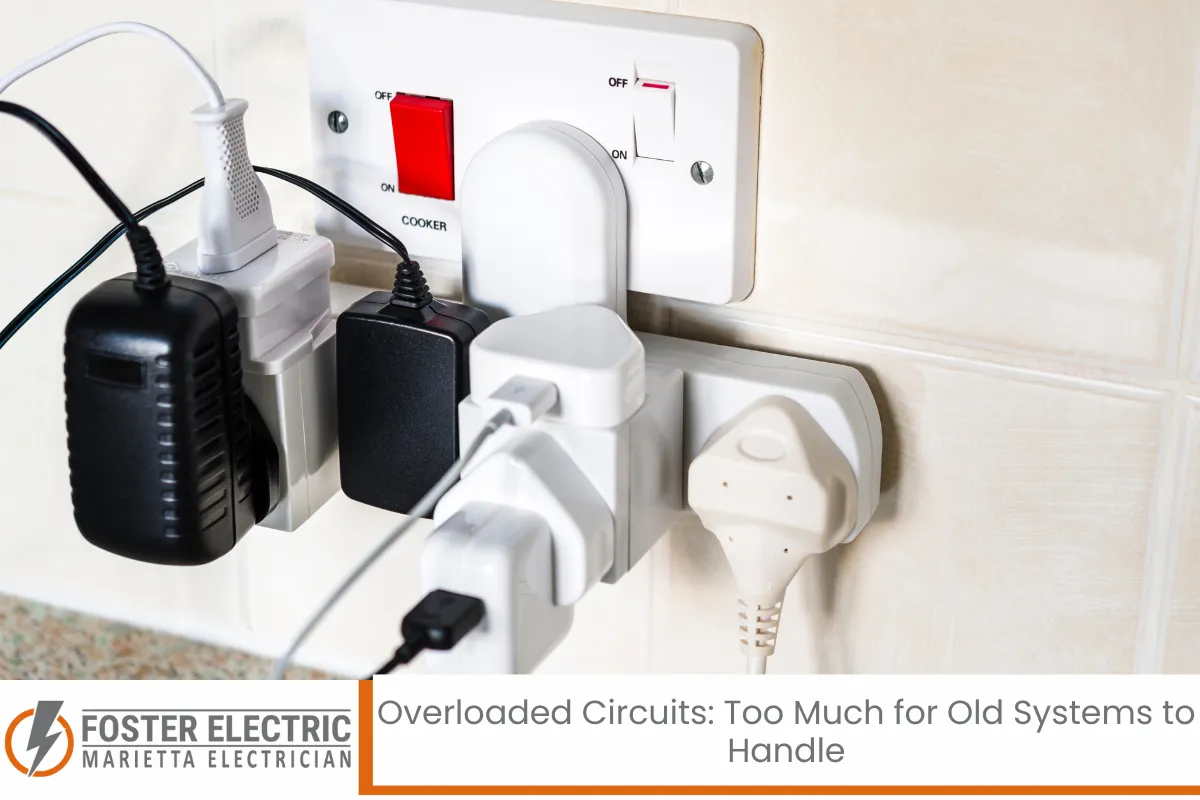
Older homes weren’t built to support dozens of modern appliances. An electrician in Elizabeth might open a panel and find one or two circuits powering an entire floor—a setup that can lead to overloads.
Overloaded circuits occur when more current flows through a wire than it can safely handle. Wires heat up, and insulation can melt. This increases the chance of arcs and sparks, especially in outdated or damaged wiring.
Homeowners sometimes use extension cords or power strips as a workaround, further increasing the load on the system. Electricians caution against this and often suggest installing additional circuits to distribute the electrical load safely across the home.
Outdated Electrical Panels: The System’s Weakest Link
The electrical panel, often referred to as a breaker box, is the heart of your home’s electrical system. It distributes electricity and protects against surges or shorts by tripping when an issue occurs. But if the panel itself is outdated or faulty, this essential safety function can fail.
In Elizabeth, electricians frequently see old panels from the 1960s and 70s that no longer meet modern safety standards. Some panels, such as Federal Pacific or Zinsco, are known to have faulty breakers that fail to trip during overloads, allowing wires to overheat and potentially cause fires.
Modern panels are safer, more efficient, and capable of supporting higher amperages. Upgrading your panel is often one of the first steps an electrician will recommend when dealing with outdated wiring.
Poor Electrical Work from Previous Owners
Do-it-yourself repairs or unlicensed electrical work are common causes of fire hazards. Electricians often find unsafe wire splices, missing junction boxes, incorrect wire types, and other risky shortcuts left behind by past homeowners.
These DIY fixes may seem harmless, but they often break basic safety rules. For example, twisting wires together without a secure connection or failing to insulate a splice can create high-heat areas inside the wall. Over time, these weak points become fire starters.
Electricians in Elizabeth strongly encourage homeowners to have all questionable or DIY work professionally evaluated and corrected.
Signs of Trouble Every Elizabeth Homeowner Should Know
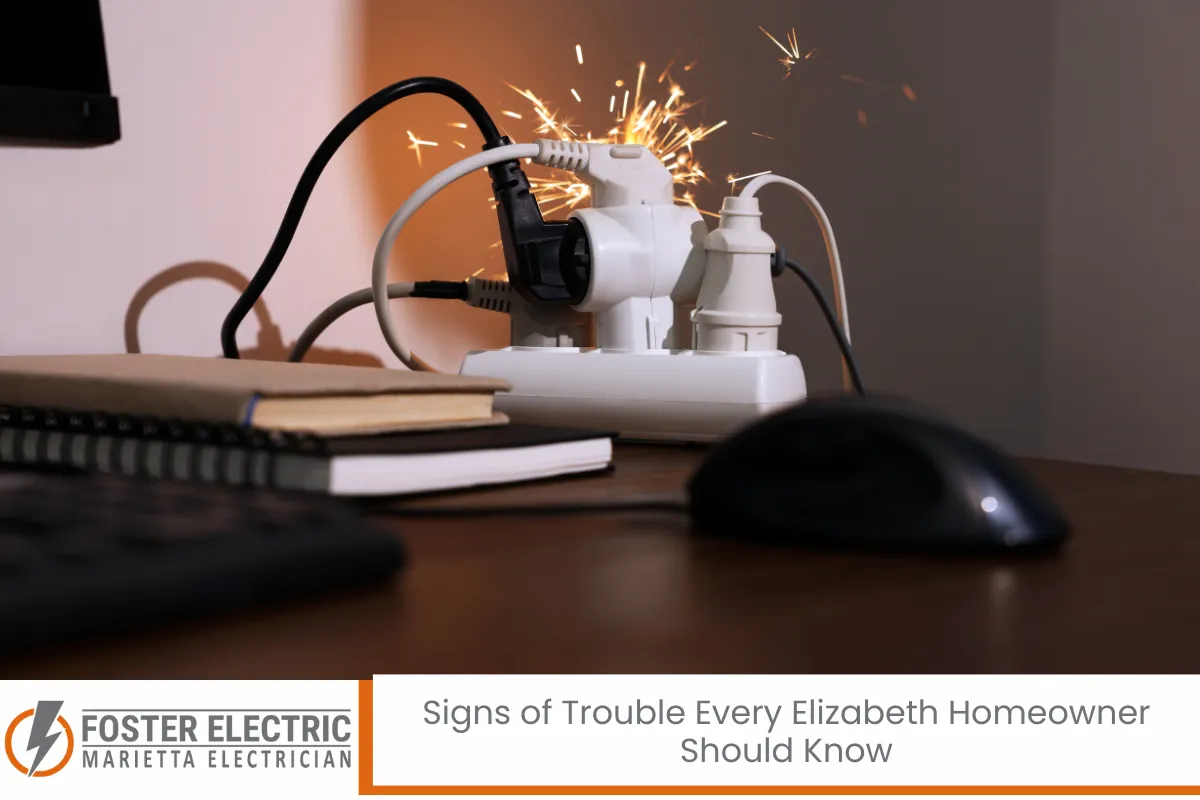
Not every electrical issue is visible, but there are warning signs that your home may be at risk. Recognizing these early can save lives.
Look out for:
- Flickering lights, especially when using large appliances
- Frequent tripped breakers or blown fuses
- Warm or discolored wall outlets
- Burning smells or unusual buzzing sounds
- Outlets that spark when plugging in a device
- Two-prong outlets with no ground
These signs are the system’s way of warning you. Ignoring them can lead to severe consequences. A professional inspection by a licensed electrician is the only way to identify the root cause and resolve the issue safely and effectively.
Keeping Elizabeth Homes Safe: What Electricians Recommend
Electrical safety starts with awareness, but it must be followed by action. Here’s what experienced electricians in Elizabeth suggest to reduce the risk of fire:
- Full or partial rewiring: Replacing outdated wires with copper brings the system up to code.
- Grounding upgrades: Adding ground wires and upgrading outlets protects against electrical faults.
- Panel upgrades: Modern panels with arc fault and ground fault interrupters (AFCIs and GFCIs) are more reliable.
- Adding new circuits helps distribute power more evenly across the home and avoids overloading.
- Professional inspections: Routine checks help catch small problems before they become major hazards.
These improvements not only make your home safer but also increase its value and energy efficiency.
Community Spotlight: The Role of Electricians in Preserving Elizabeth’s Historic Homes
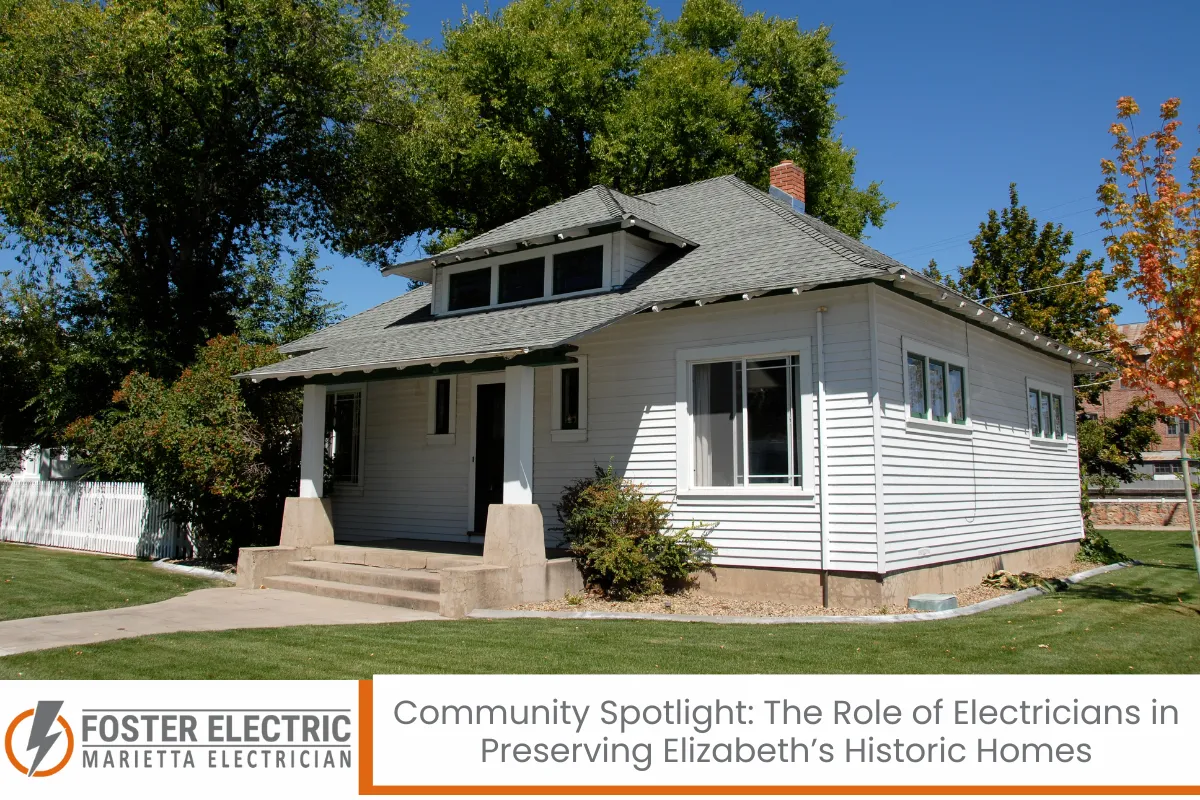
Elizabeth’s homes tell a story of decades gone by. Electricians who work in the area understand the balance between preserving history and upgrading for safety. Rewiring a home doesn’t mean tearing out its charm—it means protecting it for generations to come.
Electricians in Elizabeth take great care in working with older buildings. They are aware of the unique challenges associated with plaster walls, crawlspaces, and legacy systems. More importantly, they know how to upgrade these systems with minimal disruption, ensuring safety while respecting the original structure.
Staying Safe Starts Today
Electrical systems are not something to take lightly, especially in older homes. What you can’t see can hurt you, and the longer old wiring is left unchecked, the higher the risk becomes. Fire hazards don’t give warnings—they happen suddenly and often without mercy.
By understanding what makes outdated electrical systems dangerous and taking proactive steps to modernize them, you protect your home, your family, and your future. It all starts with a trusted inspection and a plan to update what’s behind your walls.
Elizabeth Electrician – Foster Electric
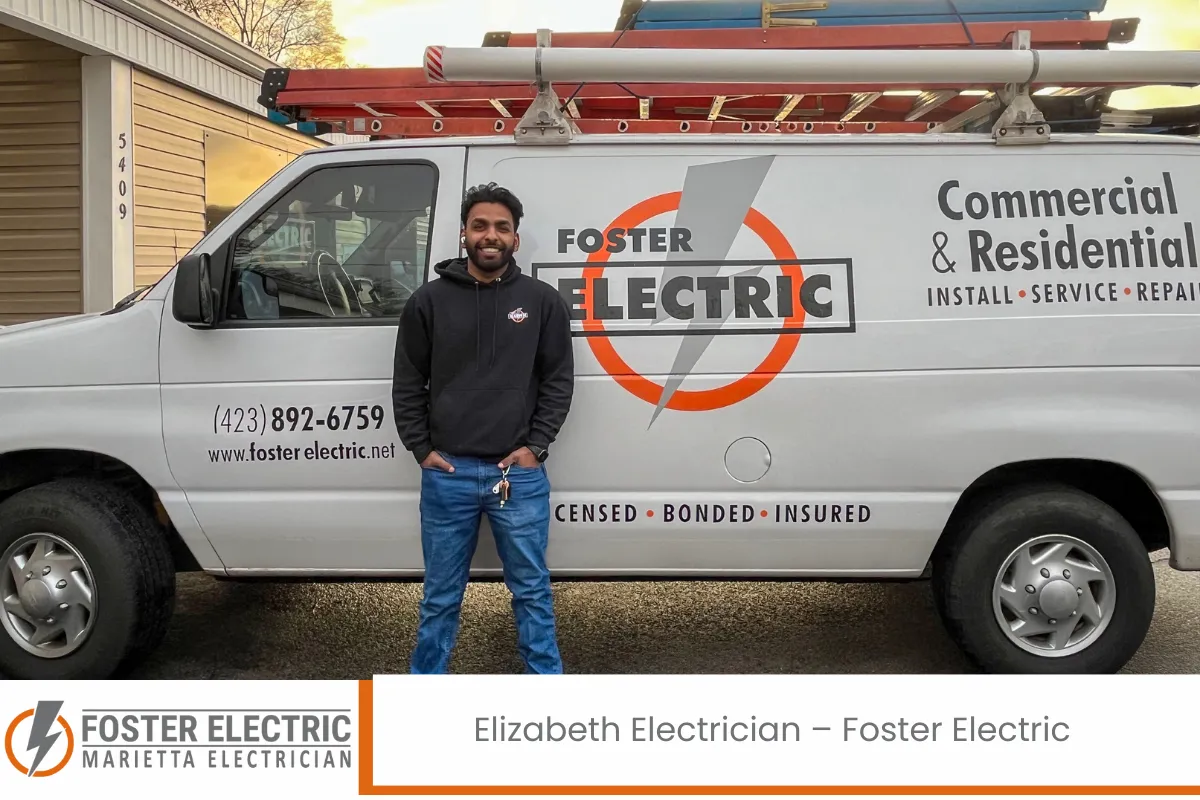
Foster Electric has been helping homeowners and businesses in the Elizabeth, GA area for over 20 years with trusted, high-quality electrical work.
Our team handles everything from updating old wiring and replacing panels to fixing outlets and improving energy efficiency. We focus on safe, smart solutions that fit today’s needs while keeping your home protected. Whether your system needs a full upgrade or just a quick checkup, we’re here to help with honest advice and skilled service.
Call us today at (404) 855-4797 to schedule your service!
FAQs About Electrician Safety Services for Older Homes in Elizabeth, GA
What are the most common causes of electrical fires in older homes?
Electrical fires in older homes are often caused by a mix of outdated wiring, improper use of extension cords, and overloaded circuits. Many vintage homes still use aluminum or cloth-covered copper wiring, which breaks down over time. This creates high-resistance points that can overheat and ignite. Loose breaker terminal screws or connections in old electrical outlets can also lead to arcing, one of the most dangerous electrical fire hazards.
Adding modern appliances to circuits that weren’t designed for today’s electrical demand increases the risk. If a neutral wire becomes loose, it can cause surges and potentially lead to fires. Worn insulation, a lack of grounding conductors, and the absence of arc-fault circuit interrupters (AFCIs) also contribute to the issue. To lower fire risk, homeowners should update light fixtures, replace ungrounded electrical outlets with GFCI outlets, and have a licensed professional inspect the wiring. Smoke detectors should also be installed in all key areas to detect fires early.
Why are GFCI outlets important for home electrical safety?
GFCI outlets, or Ground Fault Circuit Interrupters, are essential for preventing electric shock and reducing the risk of electrical fires. These special outlets shut off power when they detect even a small imbalance between the hot and neutral wires, typically caused by water exposure or faulty wiring. This is especially important in areas such as bathrooms, kitchens, garages, and basements, where moisture and electrical current often intersect.
Installing GFCI outlets protects against serious hazards that standard electrical outlets can’t catch. They also help a home comply with modern electrical codes and safety standards. Every professional electrician recommends replacing older, ungrounded two-prong outlets with GFCI (Ground Fault Circuit Interrupter) models to protect both people and property.
GFCIs are especially useful in homes with vintage wiring, where ground wires might be missing or damaged. These outlets, along with smoke alarms and arc-fault circuit interrupters, form a strong first line of defense against electrical hazards.
Can using extension cords increase the risk of fire?
Yes, using extension cords improperly can lead to serious electrical fire hazards. Extension cords are intended for temporary use, but many people use them as a permanent solution. Over time, this practice puts stress on circuits and creates unsafe connections. When plugged into overloaded electrical outlets, an extension cord can overheat, melt its insulation, or even spark a fire.
Older extension cords may lack proper grounding conductors or insulation, increasing the risk of electric shock. If a light bulb or appliance draws too much power, this can result in a circuit overload. Damaged or frayed cords also expose live copper wire, making them extremely dangerous.
To stay safe:
- Avoid plugging multiple cords into one outlet.
- Never run cords under rugs or furniture.
- Use surge protectors with built-in GFCI features when needed.
A licensed professional should assess whether your home requires additional electrical service to meet its demands safely.
What is the difference between grounding and bonding in home wiring?
Grounding and bonding are both essential to electrical safety, but they serve different purposes. Grounding involves connecting parts of the electrical system to the earth through a grounding conductor or ground rod. This helps redirect excess electricity—like from a lightning strike or surge—safely into the ground.
Bonding, on the other hand, ensures that all metal components (like electrical panels, conduit, or water pipes) are electrically connected. This prevents voltage differences between metal parts that could cause an electric shock.
For example:
- Ground wire: Carries fault current safely to the earth.
- Bonding jumper: Links metal systems together to equalize potential.
Both systems are required by safety codes and enforced by local electrical codes in Elizabeth, GA. A professional electrician ensures these connections are correctly installed, especially in older homes where vintage wiring may lack a proper ground. Without correct grounding and bonding, even simple light fixtures or outlets can become dangerous.
Why should old light fixtures and sockets be upgraded?
Old light fixtures often conceal deteriorating parts that pose significant safety hazards. Many vintage sockets weren’t designed for today’s higher-wattage light bulbs, and using bulbs that draw too much power can easily lead to overheating. This increases the risk of electrical fires, especially if outdated wiring is already running hot.
Older fixtures may also lack proper grounding, have brittle copper wiring, or contain aluminum wires without safe connectors. This combination creates high-resistance connections and potential arc points. Light fixtures that flicker, buzz, or feel hot to the touch should be inspected right away.
Upgrading to new, energy-efficient fixtures with grounded connections and modern materials improves both safety and performance. Smart bulbs and LED systems also reduce electrical demand and generate less heat. Always hire a licensed professional to install or replace fixtures safely, ensuring they meet current electrical codes. Smoke detectors nearby can provide an additional layer of protection in the event of a fault.
How do arc-fault circuit interrupters (AFCIs) help prevent fires?
Arc-fault circuit interrupters (AFCIs) are safety devices designed to detect and stop dangerous electrical arcs before they cause a fire. Unlike regular breakers, which only protect against overloads and short circuits, AFCIs recognize the unique patterns of arcing caused by loose wiring, damaged insulation, or frayed cords.
Electrical arcs generate intense heat that can ignite surrounding materials, such as wood or insulation. AFCIs trip instantly when they detect this activity, cutting power before a fire can start. They’re especially important in bedrooms, living rooms, and older areas with outdated wiring, where undetected arcs are common.
Professional electricians recommend installing AFCIs during rewiring or electrical panel upgrades. Many modern electrical codes now require AFCIs in new homes, but older properties can also benefit significantly. Combined with GFCI outlets, smoke alarms, and regular electrical inspections, AFCIs offer critical protection against electrical fire hazards in any home.
Read more: Top Warning Signs Your Wiring May Be Unsafe – Tips from an Electrician in Elizabeth, Georgia

